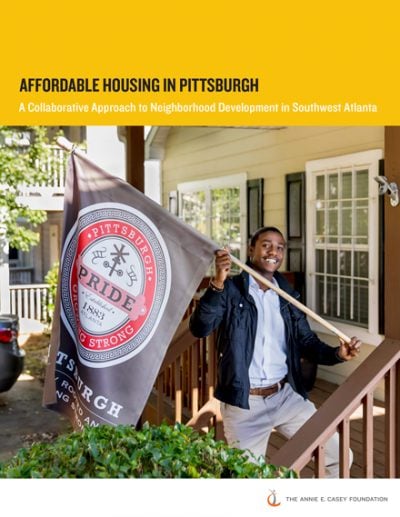Neighborhood Challenges
Pittsburgh — a once-thriving African American business district — had lost more than half its population by 1990. By 2010, 36% of its properties were vacant, spurring greater vandalism and crime.

In 2009, the Annie E. Casey Foundation launched and led a multipronged approach to revitalize Atlanta’s Pittsburgh neighborhood, which has seen some of the highest poverty and unemployment rates in the state of Georgia. The game plan? Prioritize safe, stable housing, which is necessary for communities to thrive.
This report tells how the Foundation and its partners, working in close collaboration with local residents, redeveloped 43 homes in the neighborhood and then rented or sold these properties at accessible rates.
It includes advice and insights for leaders who are interested in creating more economically inclusive communities, supporting access to safe and affordable housing and, ultimately, combating the tide of displacement that has swept over many communities of color nationwide.
This work is critical — perhaps now more than ever — as neighborhoods across the United States grapple with the economic fallout from the coronavirus pandemic.
|
The Casey Foundation and its partners used a mix of tools — including community land trusts, land banking, creative financing sources and down-payment assistance programs — to reduce vacancies, increase homeownership and create a variety of affordable housing options. |